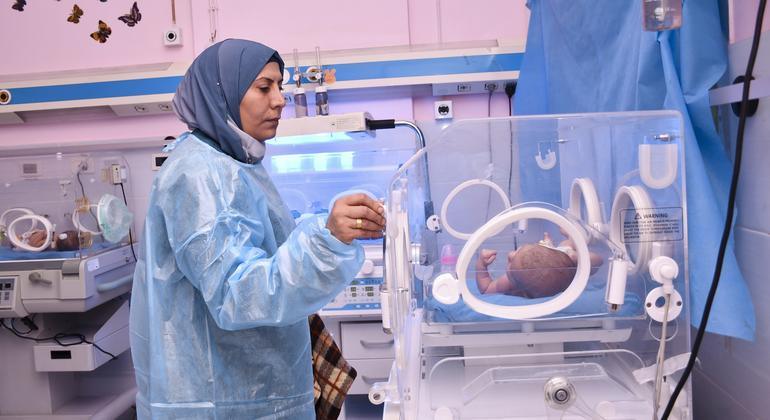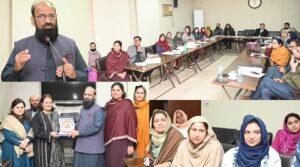Furthermore, events since late November, culminating in the overthrow of the Assad regime, have added new dimensions to the crisis, including population displacements and the return of Syrian refugees from neighboring countries.
Since November 2024, more than 882,000 Syrians have been displaced amid increasing violence, further straining the country’s fragile health system. Attacks on health facilities have also increased: according to the WHO, 37 incidents were recorded last month.
More than half of Syria’s hospitals are no longer functioning and 141 health centers in northern Aleppo and Idlib face imminent closure due to funding shortages.
Healthcare under unprecedented pressure
“Syria’s healthcare infrastructure is severely overstretched, more than ever”said Christina Bethke, acting WHO representative for the country.
“Our teams are currently providing care through mobile clinics, restoring immunization services, and integrating mental health support into health centers, especially for those affected by trauma. This appeal aims to safeguard health and dignity while offering Syrians hope for a safer future..”
WHO’s fully funded six-month strategy aims to further strengthen trauma care, deploy ambulances, restore maternal and child health services, improve disease surveillance and enable timely referral of patients.
The agency also aims to strengthen health system coordination through its center in Gaziantep, Türkiye, which coordinates assistance to some five million Syrians, including those in hard-to-reach areas.
UNHCR highlights refugee challenges
Meanwhile, the Office of the United Nations High Commissioner for Refugees (UNHCR) reported significant challenges for displaced populations and returning refugees, particularly for vulnerable groups such as people with disabilities, women and children.
Those returning from neighboring countries face serious difficulties, with destroyed homes forcing them to live in tents, with extended family or pay exorbitant rents.
Unexploded ordnance (UXO), especially on agricultural land or homes near former frontline areas, poses significant risks. Returnees also mentioned the need for legal assistance, psychosocial support and school rehabilitation.
In response, UNHCR partners in Aleppo, Hassakeh, Ar-Raqqa and rural Tartous have resumed protection activities, including programs to keep children engaged, livelihood grants, aid distribution, prevention of sexual violence and awareness sessions about UXO and other harmful objects.




